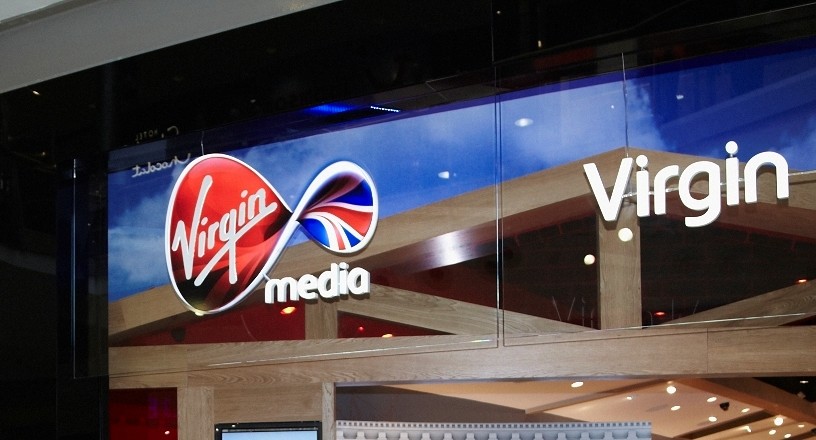Convergence may well pay off for Virgin Media
It might not be setting the world on fire, but Virgin Media is proving the slow, steady approach to business is certainly worth paying attention to.
August 8, 2019

It might not be setting the world on fire, but Virgin Media is proving the slow, steady approach to business is certainly worth paying attention to.
On the financial side of the business, total revenues grew marginally by 0.4% to £1.279 billion for the second quarter. Broadband customer acquisitions bolstered the financials, though these gains were mainly offset by customer losses in TV and mobile. This doesn’t seem to be the most attractive of statements, though the management team doesn’t seem to be worried as the convergence mentality becomes more prominent.
“Our disciplined and balanced approach to customer acquisition and capital expenditure has seen a return to growth in our sector-leading cable ARPU and strong free cash flow generation,” said Lutz Schüler, CEO of Virgin Media.
“Underpinning this is the continued success of our network expansion, new initiatives to improve sales and customer service and our fixed-mobile Oomph bundles which have already seen a doubling of customers attaching a mobile SIM to their package with meaningfully higher ARPU.”
An important aspect to always consider when discussing convergence is the incremental nature; this is a strategy which casts an eye to the horizon. Quarter-on-quarter you might not see the benefits, but in a few years’ time, a few will look back and wonder how they got by without such a considered approach to customer management, acquisition and retention.
Looking at the business objectives, there are four strategic pillars; converged customer contracts, increased sales efficiencies, improvement in base management and digital transformation. None of these strategies are a silver-bullet to find the next billion, but this is looking like a business which is in a healthy position, posed for growth in the next era of connectivity.
In the broadband business, Protect Lightning (the fibre buildout programme) now passes 1.8 million premises throughout the UK. Subscriptions increased by 5,000 across the period, taking the total to 14.7 million. Video cable subscriptions are down, though with a new bundle offering launched focused on sport, this could be an interesting area of growth for the business.
Over the next couple of weeks, we strongly suspect there will be an aggressive advertising campaign to glorify the benefits of Virgin Media’s TV subscriptions. Bundling together Sky Sports, BT Sport and Amazon (separate subscription) into a single aggregated content platform might be attractive to numerous sports fans, and at a cheaper price than competitors, it has the potential to cause disruption.
This has been a pain-point for Virgin Media for the last few years. Speaking from experience, your correspondent can detail the inadequacies of the TV package, though industry analysts are increasingly confident this new approach from Virgin Media is much more comprehensive. The management team are also putting a brave face on the loss of TV subscriptions, suggesting the strategy is to move away from entry-level customers, focusing on higher-end, higher-value targets.
These are two of the convergence prongs at Virgin Media, with mobile being the final. This is another area where subscriptions declined, primarily pre-paid, though as Virgin Media is currently an ‘also-ran’ in the mobile segment there is significant room for growth if the proposition is fairly priced in.
Working with EE/BT, the opportunity is certainly there to create an effective mobile proposition. EE/BT regularly has the highest rated network in terms of overall performance, though perhaps Virgin Media’s ability to offer 5G tariffs will play a notable role here. We’re not too sure what the agreement is between the two parties, though should it be able to offer 5G services over the EE/BT network sooner rather than later, the convergence strategy may well receive a boost.
Looking at the benefits of convergence, many point to higher ARPU, though perhaps the more significant, longer-term advantage is customer retention. Virgin Media experienced 15% customer churn at the end of 12-month contracts, though many accept churn rates decrease for converged customers. Considering the cost of acquiring new customers in a saturated market like the UK, anything which can be done to improve retention is a massive bonus.
In terms of convergence, the number of fixed-mobile converged customers has improved to 19.9%, as the proportion of new customers taking mobile with cable services doubled post launch. We have asked for more details on the number of converged customers as a percentage of the total, churn rates in comparison between the two and differences in ARPU, and at the time of writing Virgin Media is yet to respond.
We suspect the numbers will be positive, though nothing that will stop the world from spinning. That said, that is not a bad thing. Convergence is about incremental gain, the slow and steady approach to business improvement.
Convergence is about setting goals a few years in the future, it’s a gradual gander forward. You might not see the benefits, but looking back, you’ll wonder how you operated without such a considered approach to business. Virgin Media is looking like it is in a healthy position.
About the Author(s)
You May Also Like








.png?width=300&auto=webp&quality=80&disable=upscale)


_1.jpg?width=300&auto=webp&quality=80&disable=upscale)


.png?width=800&auto=webp&quality=80&disable=upscale)